The Activities of the Japan Foundation
Dialogue: Japanese Studies and Intellectual Exchange
The Japan Foundation Center for Global Partnership
 The Japan Foundation Center for Global Partnership (CGP) was established in 1991 with the goal of fostering Japan-U.S. cooperation in resolving global issues. CGP promotes dialogue and exchange between all facets of Japanese and U.S. society in order to create a solid partnership based on mutual understanding and joint Japan-U.S. contribution to the global community.
The Japan Foundation Center for Global Partnership (CGP) was established in 1991 with the goal of fostering Japan-U.S. cooperation in resolving global issues. CGP promotes dialogue and exchange between all facets of Japanese and U.S. society in order to create a solid partnership based on mutual understanding and joint Japan-U.S. contribution to the global community.
*The Japan Foundation Center for Global Partnership was restructured into the Global Partnerships Department on April 1, 2022.
Developing Activities Based on New Thematic Areas
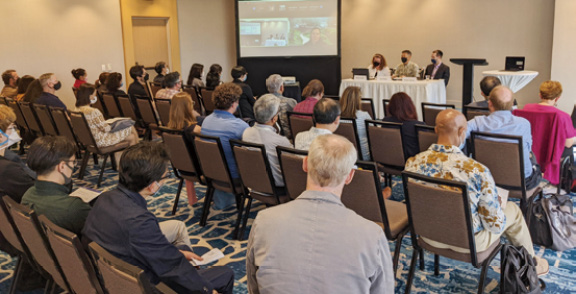
U.S.-Japan Network for the Future panel discussion
The Japan Foundation Center for Global Partnership (CGP) used its 30th anniversary as an opportunity to revise its program policies and set three thematic areas for future initiatives it will undertake, namely “Developing an inclusive society,” “Creating a society enriched by science and technology,” and “Building a resilient society.” Along with using our website and various project opportunities to publicize and increase awareness of our thematic areas, we have begun pilot projects and new grant programs that reflect our new program policies.
Activities for the 20th Anniversary of the JOI Program
Events were held in both Japan and the U.S. to commemorate the 20th anniversary of the Japan Outreach Initiative (JOI) Program, which shares Japanese culture in the U.S. A commemorative ceremony was held in the U.S. for past and present program participants, and U.S. Senator Bill Hagerty and former astronaut YAMAZAKI Naoko offered congratulatory messages. In Japan, we renovated the logo and website and also broadcast a special corner, hosted by comedian and Michigan-native ATSUGIRI Jason, on the popular radio program “All Night Nippon” for a month. The corner was intended to delve deeper into the attractions of the U.S. South, Midwest and Mountain States, where JOI coordinators are dispatched. A YouTube program was also streamed as a special edition. YUKI Maomi, a multi-talented entertainer who has experience studying abroad in the U.S., was invited as a guest and she spoke on a wide range of topics including personal anecdotes, the importance of experience overseas and its influence on her career. In the second half of the program, people with JOI experience joined in and shared the appeal of the program and the attractiveness of areas of the U.S. that Japanese people are not familiar with through stories of their personal experiences.
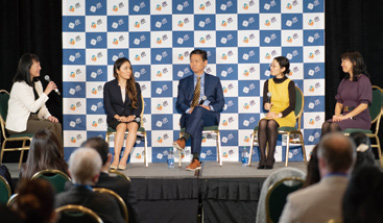
U.S.-Japan 20th anniversary commemorative event
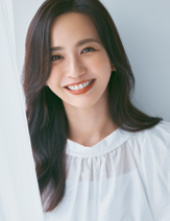
YUKI Maomi
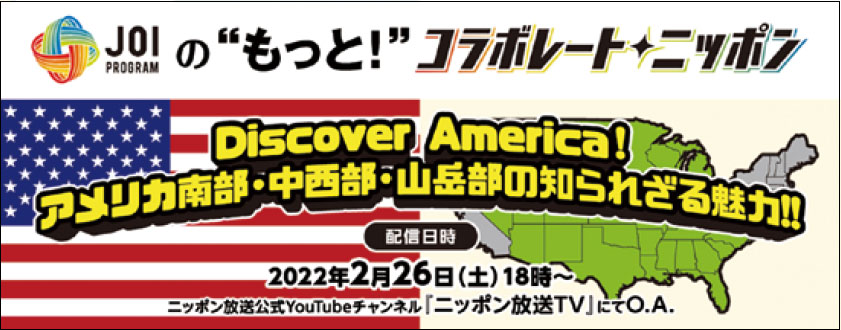
JOI Program 20th Anniversary YouTube program banner
Special Co-Organized Session at the Asahi World Forum 2021
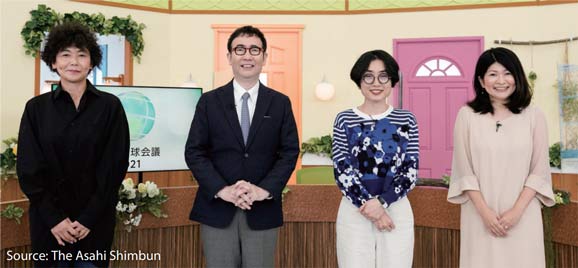
Photo, from right to left: SHIRAI Tomoko (Representative Director, Japan Association of New Public, a non-profit organization), ITO Asa (Director, Future of Humanity Research Center, Tokyo Institute of Technology), FUKUOKA Shin-Ichi (Professor, Aoyama Gakuin University; Visiting Professor, Rockefeller University), SUZUKI Akiko (Deputy Editor-in-Chief, Asahi Shimbun Globe)
We held a special co-organized session on October 17, 2021 at the Asahi World Forum 2021 organized by the Asahi Shimbun. The first session was a dialogue between FUKUOKA Shin-Ichi (Professor, Aoyama Gakuin University) and Michael Sandel (Professor, Harvard University) on postcoronavirus society. The second session, with the topic “Altruism from the Perspectives of Education and Disability Care”, was a panel discussion featuring ITO Asa (Director, Future of Humanity Research Center, Tokyo Institute of Technology), and SHIRAI Tomoko, (Representative Director, Japan Association of New Public). While the first session was a dialogue between a Japanese and an American intellectual from a broad perspective, the second session was a discussion where experienced practitioners drew out issues closer to home.
